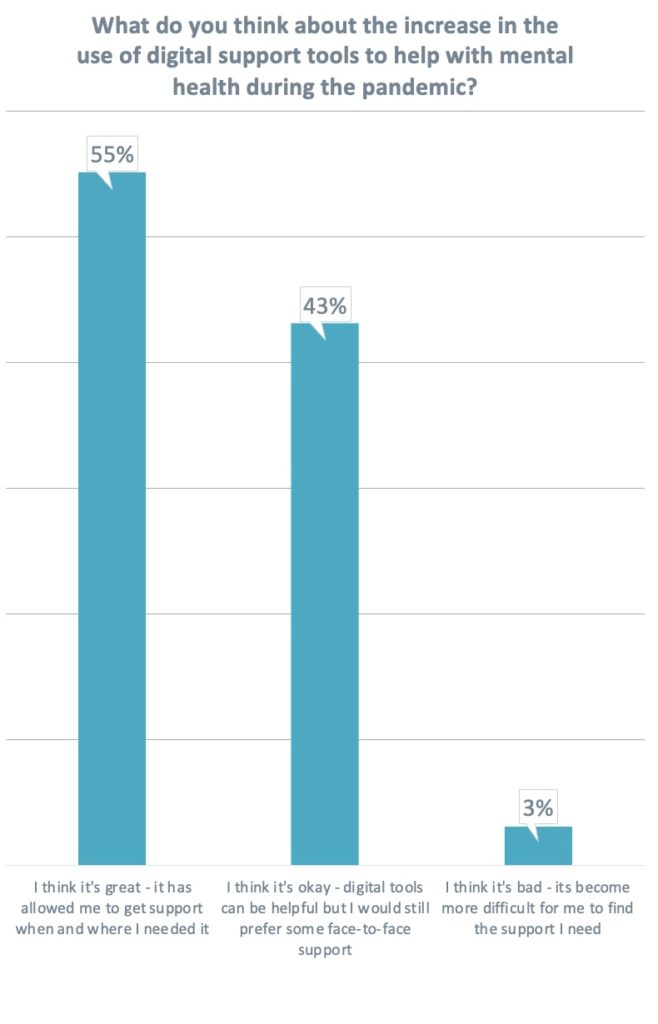
latest
Pandemic leads to upsurge in use of digital mental health tools
The increase is partly attributable to worsening mental health as a result of the pandemic

The Covid-19 pandemic led to a big rise in the number of people using digital tools for mental health support.
FCC commissioned ZPB to carry out research into the use of digital technology among people with mental health problems. Questions about the effect of the pandemic drew a mixed response: while it clearly had a detrimental effect on mental health, digital tools were seen by respondents as a valuable source of support.
Of the 515 respondents surveyed, three in five (62%) used digital tools for support more frequently than before the pandemic. Of those, nearly three-quarters (73%) said this was because their mental health had been affected by the pandemic, while 59% said that accessing face-to-face support had become more difficult. Nearly a third (31%), however, said that technology had improved over the pandemic, while only 16% said they preferred digital to other forms of support. (Respondents could select multiple answers.)
A minority of respondents – one in five – used digital technology less frequently over the course of the pandemic. Asked why, 43% said it was because their mental health had improved, while 39% said they preferred face-to-face support, and 25% said the tools were not helping their mental health. (Again, respondents could select multiple answers.)
Some users were not aware of digital mental health tools before the pandemic
During the pandemic, many of us became more familiar with digital technology than we had been previously. This seems to have been the case for users of mental health support tools too. Three in five respondents (61%) already used digital tools for mental health support before the arrival of Covid-19. Of those who hadn’t used them, however, just over half (52%) said they were not aware of such tools before the pandemic, while one in five said they hadn’t had an issue with their mental health before the pandemic.
Attitudes towards digital tools were largely positive, with 55% reporting that the increased use of digital technology as a result of the pandemic was “great”, because it allowed them to access support where and when they need it. Two out of five (43%) described it as “okay” but said would still like to receive some face-to-face support, while only 3% said they thought it was “bad” and that it had become more difficult for them to get the support they need.
